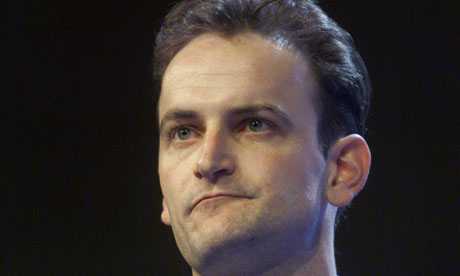Investigation reveals more than £1.6m was channelled to MPs and lords in last year by corporations and interest groups
James Ball

Corporations and interest groups have channelled more than £1.6m to MPs and lords in the past year through sponsorship of parliamentary groups, a Guardian investigation can reveal.
Parliamentary reformers given access to the Guardian’s findings have called on the coalition government to take action to prevent all-party groups acting as “mere front groups for lobbyists to buy influence”.
Westminster has more than 450 all-party political groups, semi-official entities around particular subjects or countries, ranging from groups on asthma and autism, to the parliamentary choir and rowing team.
The Guardian has found 283 of these groups receive financial support from outside interests, including:
• £60,000 support for the parliamentary choir from BT
• £52,000 from drink and pub companies for the beer group
• £16,000 for the parliamentary boat race from Siemens
Other benefits are less quantifiable: the members of the all-party wine and spirits group, co-chaired by former Tory shadow minister Geoffrey Clifton-Brown and new Labour MP Ian Mearns, receive corkage, refreshment and wine tasting thanks to the largesse of the Wine and Spirits Trade Association. Some sporting groups, such as the athletics or rugby league groups, receive free tickets to matches.
Benefits of a less indulgent nature are offered to the parliamentary slimming group, whose members include Ed Vaizey and David Amess: they are entitled to receive free Slimming World membership, worth £290 a year.
Conservative MP Douglas Carswell, an outspoken advocate for parliamentary reform, says constituents should make the judgment on whether such fringe benefits are legitimate.
“I don’t know whether it’s legitimate for companies to hand out, say, sports tickets to MPs,” he said. “But if my constituents can see clearly and easily what I have received, sunlight is the best disinfectant. The public will quickly rule what they think is acceptable. It’s for them to decide, not a group of Westminster grandees.”
Some MPs and lords are more enthusiastic members of all-party groups than others. The Guardian’s investigation reveals for the first time which MPs sit on the most groups. Topping the chart is veteran Conservative Peter Bottomley, who is a member of 151 groups; 65 more than fellow Tory David Amess, who is second with 86 memberships.
All-party parliamentary groups do more than just indulge members’ hobbies. Many produce reports or studies into their areas of interest, and the groups are also entitled to issue Parliamentary passes – which give the bearer open access to the palace of Westminster.
The Guardian has found that last year 70 groups declared issuing passes to individuals “advantaged by the privileged access to parliament afforded by their pass”. One recipient is Robin Ashby, the director-general of the UK Defence Forum, who has been stripped of a parliamentary pass on two previous locations, although he denies ever having used a pass improperly.
Other passes have gone to Aviva’s public affairs consultant, the parliamentary officer of the council for Arab-British understanding, the political officer of the Unite union and the public policy officer of the Catholic Bishops’ Conference.
Even groups with a more serious purpose, such as the all-party parliamentary group for diabetes, are often sponsored by vested corporate interest. The diabetes group received £28,000 funding for one of its reports from Japanese pharmaceutical company Takeda.
The information technology group received more than £46,000 from companies including Vodafone, Motorola and Nominet, much of which funded annual dinners and receptions. Transport safety received £48,350 for unspecified purposes from a plethora of donors including 3M UK, Esure, Aviva, the Association of British Insurers, and the Royal Mail.
Donations received by all-party groups are published on an online register, but as they are split across 485 pages in multiple categories, calculating the total influence on each group has previously been impossible. But the data website ScraperWiki wrote a computer script to collect the data in one place, allowing more detailed analysis of the register as at 23 December 2010. This also revealed for the first time that 45 groups are administered by professional parliamentary lobbyists, such as Quiller consultants, Luther Pendragon and Bell Pottinger Public Affairs.
Several dozen more are administered by industry groups: the advertising group is administered by the Advertising Association; the food group by the Food and Drink Federation; Crossrail Ltd funds the secretariat for the Crossrail group, and even the group for the packaging manufacturing industry is administered by the packaging federation.
Secretariat support can vary from a day a week’s support from a junior administrator to several employees working full-time to support a group’s function. All-party groups are not required to estimate the value of non-cash support – they need only include it on the register if they estimate its worth to be at least £1,500 a year – and so the full extent of sponsorship received by outside groups is still hidden from the public.
“There’s a distinction to be made between legitimate lobbying and buying influence,” Carswell said.
“MPs and Lords with a genuine interest in a subject gathering and talking to various lobbies is clearly a good thing. But others appear to be backed by blatant lobby groups – they are effectively a front for lobbies in parliament.
Carswell added: “The coalition has promised to clean up politics. This is one area where they need to make a start.”
www.guardian.co.uk, 24 February 2011
